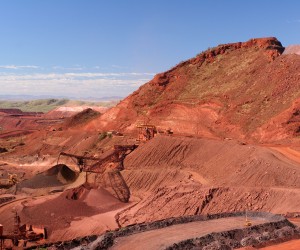In this uncertain economic climate, the difficult task that a mining company faces when it decides which projects to fund is made no easier by a growing range of stakeholders to consider. What is demanded is a technical approach that holistically draws all factors into scenarios that can be scored, ranked and compared.
Mining is clearly becoming increasingly complex, and this makes the capital allocation criteria of mining firms and investors more difficult. It is all very well to focus on the return on investment (ROI) as the key indicator, as this is where investors are pegging their hopes for commercial success. But ROI is not by itself a good gauge of sustainability; it may even be pursued at the expense of other factors that threaten the long-term success of the asset.
It begins with a strategic objective, which usually includes locating the project in the lowest cost quartile of producers in that sector – making the mine resilient to the inevitable fluctuations in commodity prices. Indeed, it is frequently the position on the cost-curve – rather than the commodity price itself – that is the key risk to new projects.
Marketing risk is another important criterion, along with the rate of return – often measured in terms of net present value. The life-of-mine is also significant, as this is based on the mineral reserves available and the plant capacity, and affects the social impact of the operation in the local community.
What can be done in a scenario is a weighting of these criteria and risks, so that different projects – or different avenues to developing a single project – can be contrasted.
The value is in the comparison, allowing decisions to be based on careful technical studies whose results are quantified in an objective way and presented through a number of scenarios. But there is another valuable element in this process: it demands that the strategic objectives be clear from the start, which encourages investors and management alike to look beyond ROI to sustainability issues.
For instance, it is incumbent on mines to have a positive impact on their local communities, the revenues of their host governments, and the well-being of employees, to mention a few key stakeholders. The scenarios will incorporate some consideration of each of them in the strategic focus of the business, as any failure to address expectations could pose a risk to sustainability that will eventually threaten the targeted ROI.
Even the application of technology in a mining project may come under increased scrutiny when generating scenarios, as it could have an impact on the number and nature of jobs created for local people. A high-tech operation in an impoverished and under-educated community would beg the question about where positive economic spin-off would come from. Jobs may then need to be created upstream or downstream of the mine itself – all considerations that would impact on resource allocation, ROI, compliance and sustainability.
This kind of situation may require interventions such as Anglo American Platinum’s recently commended Alchemy Project, in which SRK Consulting plays a partnership role. Alchemy develops mine communities that did not previously benefit from empowerment, with each development phase underpinned by internal and external consultation and engagement activities. The initiative targets host communities situated close to Angloplats mines in Mogalakwena, Rustenburg, Twickenham and Amandelbult (Tumela/Dishaba), as well as other areas in Northwest, Limpopo, the Eastern Cape, Mozambique and Lesotho.
Perhaps the key element of the process is the effective integration of all these concerns, so that none are sidelined to the detriment of long-term sustainability. This is, of course, easier said than done. Like all aspects of the project planning, data collection, modelling and recommendations, the outcome depends on the expertise and experience of those conducting the work – and their ability to work as a team to combine their inputs.
To do this, having both depth and breadth of technical knowledge in-house is a clear advantage. In SRK Consulting, for instance, there are well-known experts in respective fields such as open pit engineering, geotechnical engineering, ore reserve estimation and reporting standards. There are also experts leading competent teams in environmental and social impact assessments, and in water management – now vital areas of compliance and performance for mines.
With the interdisciplinary approach and quality standards ingrained in the organisation over four decades, it is easier to pull together the many crucial strands of the technical studies that underlie good projects – and to ensure that the scenarios are fed by impeccable information.
It also adds value to the process when this input comes from an independent third party such as recognised and trusted consulting engineers with no other holdings or interest in the operation – allowing findings to be conveyed without fear or favour.
Roger Dixon
BOX: About SRK
Founded in Johannesburg in 1974, SRK Consulting is now a global network of consulting engineers and scientists focused on the natural resources and infrastructure sectors. SRK employs over 1 500 professionals of diverse cultural and national backgrounds, staffing over 50 consulting engineering practices on six continents. Africa is home to 15 SRK offices, including Angola, Cameroon, Democratic Republic of Congo, Ghana, South Africa and Zimbabwe; it is involved in over 900 projects in Africa – in fields including exploration, services, mining, tailings and waste, water, environment and social, geotechnical, civil and structural, engineering infrastructure, and GIS.








